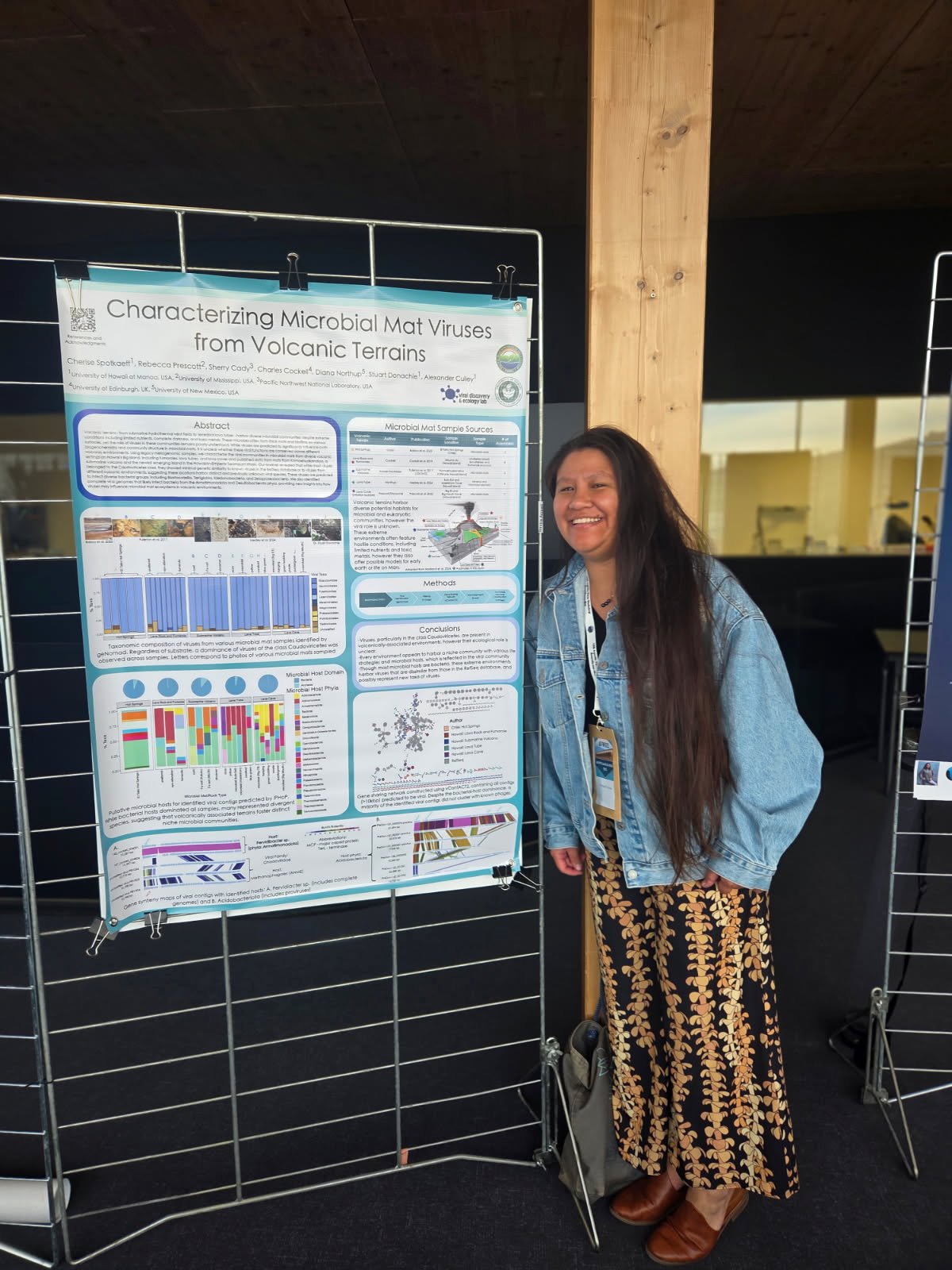
TEAM
Alex Culley, PBRC Associate Researcher
aculley(commercial at)hawaii.edu
Microbiomes, the ensemble of diverse microbes including viroids, viruses, archaea, bacteria, and protists, underpin the biogeochemical and ecological functioning of the biosphere. Microbes accomplish these life-sustaining transformations of matter and energy through complex interactions that remain poorly understood in many environments. My research program takes an interdisciplinary approach to better understand microbiome function in extreme environments, from the Last Ice Area in the Canadian High Arctic to lava tubes in the Hawaiian Islands.
Photo courtesy of Catherine Girard
Cherise Spotkaeff
crus(commercial at)hawaii.edu
Cherise is a PhD candidate who is investigating the biogeography of viruses in volcanically-associated environments.

